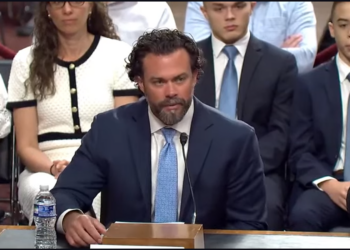“Americans have watched politicians earn a fortune using information not available to the general public while the average family struggles to get by. It’s just wrong,” said Missouri Republican Senator Josh Hawley. “Members of Congress should be focused on delivering results for their constituents, not returns on investments. It’s time to find out where members stand. It’s time we restore trust in Congress and ban all members from trading and holding stocks.”
To that end, he voted with every Democrat on the Senate Homeland Security and Governmental Affairs Committee to advance his bill. Cleverly, he named it the Preventing Elected Leaders From Owning Securities and Investments (PELOSI) Act after Nancy Pelosi, who has managed to parlay her $174,000 congressional salary into a personal fortune currently estimated at more than $260 million.
Nice work if you can get it.
In exchange for those Democrat votes, Hawley agreed to change the bill’s name to the Honest Act. As for Republicans, Fox News reports that they “argued that the bill came out at the last minute, included provisions they were unaware of and charged that the legislation specifically targeted Trump.” Because of GOP opposition, the bill may never reach the Senate floor.
Hawley responded that it “explicitly exempts” the president and vice president, which is true in that it doesn’t take effect until after they leave office.
Initially, Trump supported the bill. Yet then he harshly criticized Hawley as a “second-tier senator” and objected to his helping Democrats “target” him before the pair had a “good chat” to get back on the same page.
Now, Trump is touting the message that it’s about cleaning up the (alleged!) corruption that got Pelosi rich. “Nancy Pelosi became rich by having inside information,” Trump asserted. “She made a fortune with her husband. And I think that’s disgraceful.”
Pelosi … sort of agreed, albeit while sputtering objections when CNN’s Jake Tapper brought it up. “I’m not into it,” she insisted. “My husband is, but it isn’t anything to do with anything insider.” She didn’t exactly note that she greatly benefits from her husband’s wealth, nor did she explain how her husband makes such fantastically timed trades of stock affected by congressional action.
Pelosi accused Trump of “projecting,” which is hilarious given that he’s done things like forgoing his presidential salary. “I very much support the [efforts to] stop the trading of members of Congress,” Pelosi opined. “Not that I think anybody is doing anything wrong.”
Oh, of course not. Perish the thought.
If there’s one thing Pelosi knows how to do, though, it’s play swamp games. That’s why she endorsed Hawley’s bill. “If legislation is advanced to help restore trust in government and ensure that those in power are held to the highest ethical standards, then I am proud to support it — no matter what they decide to name it,” Pelosi said in a statement. “While I appreciate the creativity of my Republican colleagues in drafting legislative acronyms, I welcome any serious effort to raise ethical standards in public service.”
If The New York Times is correct — a big “if,” I know — “More than 80 percent of voters support banning members of Congress from trading individual stocks.” That’s because what Congress does affects so many companies in foreseeable ways, and that information can benefit people savvy enough to use it.
As I noted above, the congressional salary is $174,000 a year, which is about three times higher than the average American income. The median net worth of members of Congress is over $1 million, which is not exactly representative of the people. Still, many, if not most, of the wealthy members earn their money in perfectly legitimate ways. House and Senate financial disclosures are publicly available.
Florida Republican Senator Rick Scott objected to some of Hawley’s comments and opposes his bill. “I don’t know when in this country it became a negative to make money,” Scott rightly complained. “This idea that we’re going to attack people because they make money is wrong.” Scott also happens to be the wealthiest member of Congress, with a fortune estimated to exceed $500 million.
Earning money is a key part of the American Dream. As long as it’s lawfully done, everyone should support that as an economic goal. (Spiritually, it’s another discussion.) However, it’s also eminently reasonable to limit congressional members’ ability to use insider information to gain advantages that the hoi polloi do not have.
















